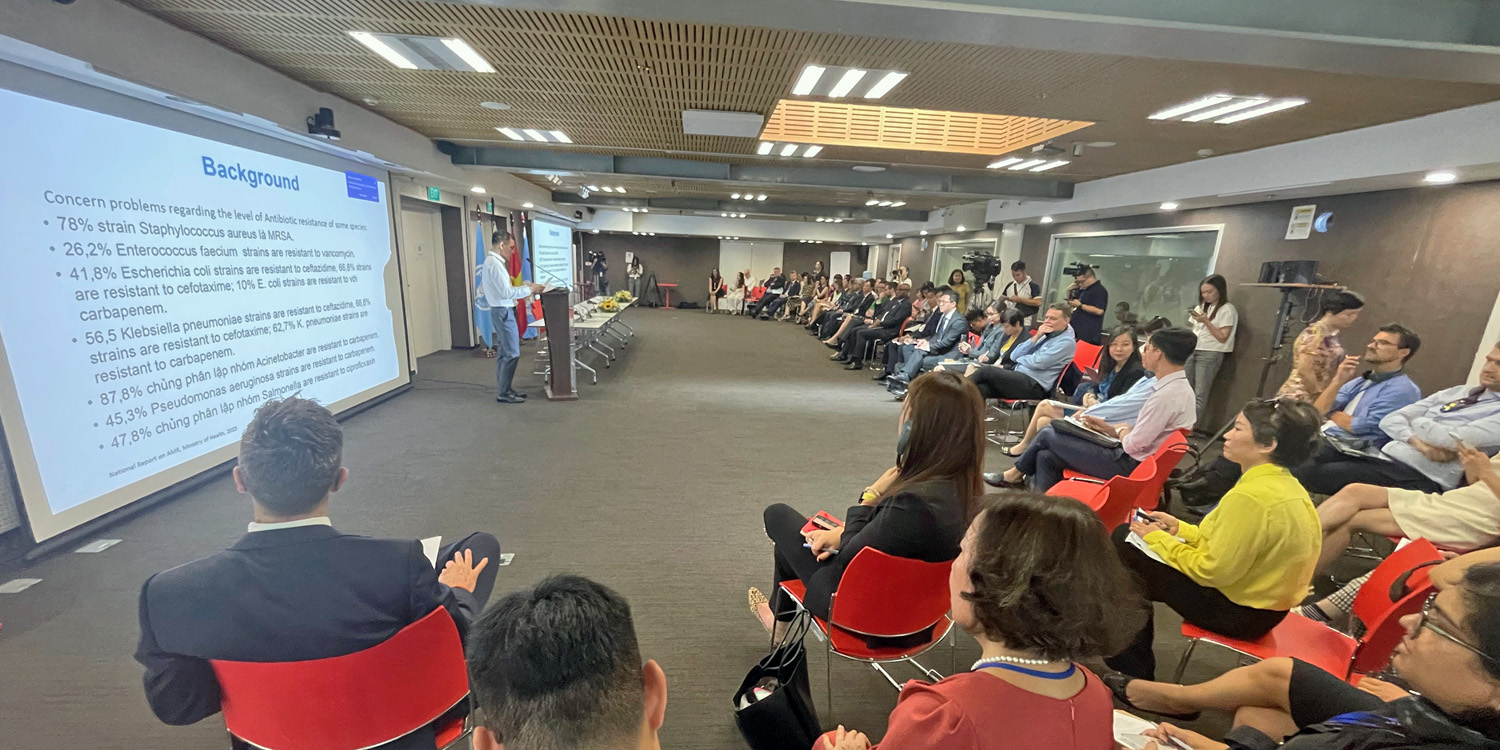Viet Nam calls for collaborative action to combat antimicrobial resistance

Viet Nam calls for collaborative action to combat antimicrobial resistance
©FAO/Pawin Padungtod
HANOI — In an effort to combat the global threat of antimicrobial resistance (AMR), Viet Nam has called for unified action across all sectors. This call to action was made during a High-Level Roundtable on AMR in Ha Noi, where representatives emphasized the urgent need for collaboration to address this pressing issue.
AMR poses a significant challenge to public health and development worldwide, as it occurs when bacteria, viruses, fungi, and parasites no longer respond to antimicrobial medicines. This resistance renders infections difficult or impossible to treat, leading to increased risks of disease spread, severe illness, disability, and death.
During the roundtable, stakeholders from various sectors, including government agencies, the United Nations, embassies, research institutions, academia and development partners, came together to discuss the critical importance of addressing AMR. The event was co-chaired by Dr Nguyen Tri Thuc, Vice Minister of Health, and Dr Phung Duc Tien, Vice Minister of Agriculture and Rural Development.
The Vietnamese government stressed the necessity of implementing the National Action Plan on AMR, with a focus on responsible antimicrobial use in both health and agriculture sectors. This includes urging farmers to use the appropriate drugs for specific diseases in compliance with regulations aimed at reducing antimicrobial agents' use in the agricultural sector.
Furthermore, Viet Nam underlined the importance of collective efforts to tackle AMR effectively. Dr Thuc called upon all citizens to play a role in curbing AMR, emphasizing the need for collaboration across health, animal, and environmental sectors. This collaborative approach aligns with the government's National Strategy for 2023–2030, aiming to prevent and control the rising trend of AMR effectively.
Enforcing the National Action Plan to Prevent and Combat Drug Resistance in Health Care for the period of 2024–2025 serves as a crucial step towards accelerating progress in combatting AMR. The government encourages the commitment of all stakeholders, including health workers, the pharmaceutical industry, academic and research institutions, patients, consumers, policymakers, government leaders, and international organizations, to join forces in addressing AMR.
Dr Remi Nono Womdim, the Food and Agriculture Organization of the United Nations (FAO) Representative, and Dr Angela Pratt, the World Health Organization (WHO) Representative for Vietnam, underscored the critical nature of tackling AMR from a holistic perspective, encompassing health, agriculture, and environmental dimensions. The urgency of addressing AMR is becoming increasingly apparent globally. As part of this push, the United Nations General Assembly is holding a High-Level Meeting on AMR and the fourth Global High-Level Ministerial Conference on AMR, highlighting the growing international consensus on the need for immediate and coordinated action to address this critical issue.
Dr Nono Womdin emphasized that “The upcoming High-Level Meeting on AMR at the United Nations General Assembly on 26 September 2024 offers an unparalleled opportunity to consolidate hard-won gains and agree on sustainable solutions for the future. Preventing and addressing AMR will bring substantial benefits across the food production, animal health, the environment and health-care sectors.
The call to action from Viet Nam highlights the global importance of addressing AMR and the need for coordinated efforts across all sectors to tackle this pressing public health challenge.
Contact
- Pawin Padungtod, Senior Technical Coordinator, FAO ECTAD in Viet Nam
